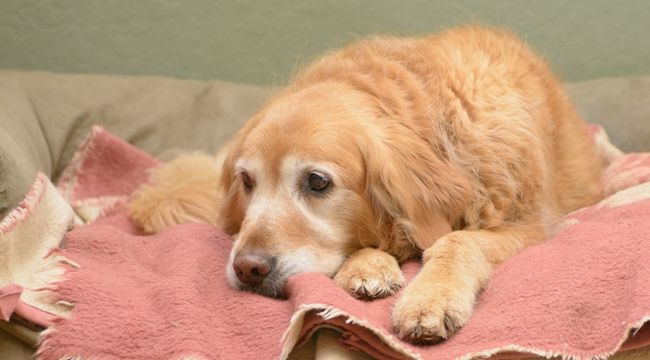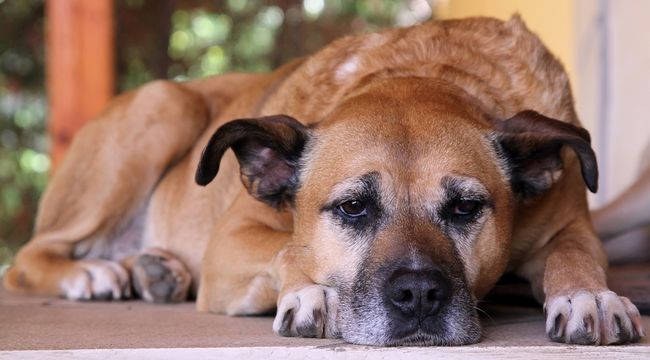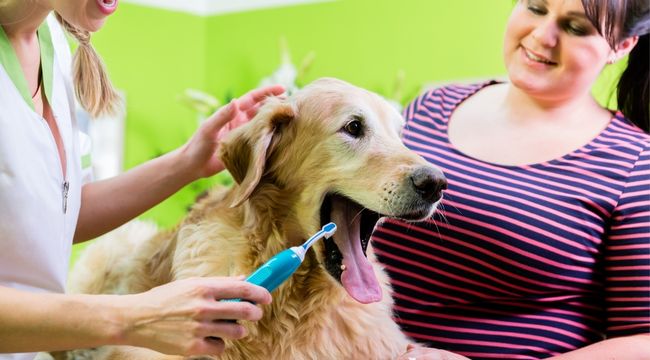The 10 Best Tips for Taking Care of an Older Dog

Like any other living thing, your pooch will one day become old. As your dog ages, you may have to face a few issues concerning their care. Senior dogs may show signs of illness and various health conditions. Their senses will dull slightly and their activity level won’t be what it used to be.
Whatever the case, getting old doesn’t have to mean the end for your dog. You can still make their final years enjoyable. This article will list some of the important tips you need to care for a senior dog. Follow these tips and you’ll be able to keep your old dog happy and content.
Signs of Aging in Dogs

Before you proceed, you should determine whether your dog is truly a senior dog. Dogs age differently based on their breed. So different breeds of the same age might not all be considered senior dogs. Often smaller dogs like Chihuahuas will live longer than their larger counterparts.
They will become old at around 8 to 10 years of age. Whereas medium-sized dogs such as Golden Retrievers will become old at 5 or 6 years old. They are considered senior dogs when they reach 8 years old.
Besides the obvious signs of old age like reduced activity, senior dogs will develop various health problems. Some of the health problems you may experience are listed below.
Arthritis
This is a common condition that affects senior dogs. Arthritis is when one or more joints become inflamed. Over time, the dog will not have the strength to walk long distances or run for long periods of time. Larger breeds are more at risk of being diagnosed with arthritis.
Ear Problems
Dogs in their later years are likely to develop ear infections. This is more evident in dogs with floppy ears. As your dog reaches a senior age, they may lose some of their hearing.
Eye Problems
Senior dogs also contract eye problems. They usually don’t have the same eyesight they had when they were young. Cataracts are a common condition that affects an old dog’s eyes. If your dog has cataracts, you’ll notice their eyes will appear milky and glazed over.
Ways to Caring for an Elderly Dog

Senior dogs need extra care. To keep any health problems at bay, you’ll need to be observant of your dog’s aging body and give them a loving and happy home. You should also make sure that you keep your dog exercised and energized. You don’t want them to feel alone or bored in their later years. So let’s dive right into the 10 tips for caring for your senior dog.
#1. Visit a Vet Regularly
We know that senior dogs are bound to show fall prey to various health issues. So regular visits to a vet is a must. The vet can examine your buddy thoroughly and determine whether they are suffering from many ailments. They will also provide advice on how to keep your dog healthy and active.
Regular vet visits are necessary to prevent any health condition from getting any worse. Keep in touch with your vet at all times. If your doggo is showing any serious symptoms such as vomiting or dehydration, don’t hesitate to take them to the vet.
#2. Diet and Nutrition
The diet you provide your dog should be suited to their age. They need a balanced diet that. contains all the necessary nutrients to maintain good health. Dogs with arthritis should eat food that is rich in beta-carotene. Sweet potatoes are good sources of this nutrient.
Avoid fatty food at all costs. These foods will worsen any health condition your pup might be suffering from. Also, try and avoid overfeeding your senior dog. As they’re less active, they are at risk of obesity if they’re overfed. Consult an experienced vet who can provide an insight into the special dietary requirements of a senior dog.
#3. Exercise is Important
You need to motivate your doggo to be more active. Exercise is a great way to keep your dog’s muscles and weight in check. Plus, your dog will be mentally stimulated too! Once again, a qualified vet can give you information on how to go about exercising your senior dog.
Just make sure that you keep an eye out for any signs of fatigue or discomfort. Start slowly and build your way up to a few more minutes at a time. Something as simple as a morning walk can be a great exercise for both you and your senior buddy.
#4. Maintain his Dental Health
Dental care should be maintained from an early age. It’s an essential part of grooming your dog. By looking after your dog’s teeth, they’ll be saved from all sorts of oral conditions such as plaque build-up and infections.
Sadly, we see many adult dogs not getting the right dental care. Often these dogs lose some of their teeth as they age. . Regular visits to the vet, at least once a year, is recommended to maintain your dog’s oral hygiene. At home, you should wash your dog’s teeth every day. Dental treats are also a good way of managing your dog’s dental hygiene.
#5. Vaccination and Antiparasitic
Senior dogs do not need vaccinations as frequently as younger canines. Usually, you ’ll have to get the shot done once every three years or so. A vet can give you a clearer idea on timescales after checking your pup.
Fleas, ticks, and worms may bother your dog even as they age. . So, you need to continue to give your dog an antiparasitic. Always watch for any side effects and discuss any medication with your vet first.
#6. Grooming
Long-haired breeds will require a decent amount of grooming in their senior years. Besides, as dog’s age, their coat will start to dull. To keep your senior dog’s coat in good condition, take them to a groomer regularly. This will help maintain a shiny coat and healthy skin.
Be sure to only use natural shampoos and skincare products for your old dog. Natural products will avoid any unnecessary irritation. Brush your dog’s coat regularly as this will prevent any knots from forming.
#7. Address Any Health Conditions
As we’ve discussed, senior dogs may show symptoms of various diseases and health conditions. The vet is your best friend when it comes to addressing these health issues.
So take your dog in whenever you start to see signs or symptoms of anything strange in your dog. It’s better to be safe than sorry. Provide any medication and supplements your vet prescribes.
You may also have to change some parts of your dog’s lifestyle. For example, old dogs with arthritis need to avoid putting excessive pressure on their joints. So remember that a senior dog will not be able to run around as they did before.
Anxiety and mental issues also crop up in senior dogs. Spend a good deal of time with your dog if you suspect that they are suffering from any of these conditions. Sometimes, a bit of time with their owner can be healing. Young dogs that have had training tend to show less mental problems when they’re older. CBD oil might be helpful for your dog to be healthy.
#8. Companionship
Older dogs are more attached to their owners. Due to their age, they may show various physical ailments, such as sore joints and labored breathing. But they will live a happy life in their golden years if you provide enough companionship. Your touch, smell, and presence do wonders in soothing your dog.
Senior dogs’ sense of smell and their eyesight will also start to decline. So your dog will appreciate your closeness now more than ever. Keeping your dog company is very important for your dog’s mental health.
To keep your dog happy, take them to a local dog club where they can socialize with other dogs and humans. The more interactions they have, the more stimulated they will be.
#9. Provide Plenty of Toys
Toys are a great way to mentally stimulate your dog, especially senior ones. Toys will keep your dog busy and occupied. The right toy also helps to keep senior dogs mentally active and happy.
There are tons of toys for senior dogs on the market. From balls and chew toys, to squeaking toys and chew bones that flex at a bite, there are so many cool options out there. An old dog will appreciate a new toy just like they did when they were puppies. So, don’t hesitate to surprise your old dog with something new and exciting.
#10. Special Accommodation for Senior Dogs
You may have to consider changing a few things at home to make your old buddy more comfortable. They will not be mobile enough to climb onto a sofa or bed. So provide your dog with the bed they can access easily; one that does not require your dog to jump or climb.
Older dogs with joint problems can injure themselves if they fall while climbing stairs. So try to make it easier for your senior friend by installing dog proof gates in front of the stairs. Consider laying down rugs or carpets in your house to keep your dog warm and ease the pressure on their joints.
#11. Savor the Moment
You’ll need to make sure your dog’s last days are filled with energy and love. Take a lot of pictures with your dog. And if possible, take them out to see various places. Let your dog make new friends and take part in new activities.
As a dog owner, you have a responsibility of paying back the companionship your dog gave you in their lifetime. The best way to do this is to give your dog as much love and affection as possible.
Some Final Words
Dogs need our affection the most when they are at the final stage of their lives. It is heartbreaking to see a dog suffer due to old age. But with patience, diligence, and love, you can help your dog to live their life to the fullest. Just remember to keep in regular contact with the vet. That way, you can make the life of your senior doggo comfortable and a lot more fun.



